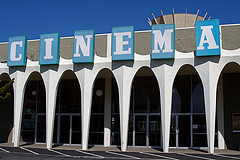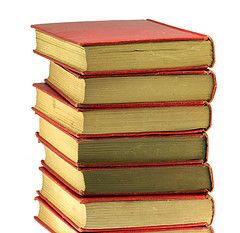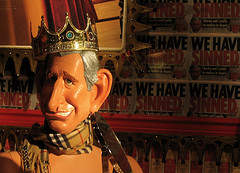3. Let's go to the cinema!
Last night, Paco met Paul's friends after the rugby match. They went to some typical British pubs and Paco, who is not used to drinking alcohol, drank just a pint of beer and ended up a bit tipsy. The strange thing was they drank pint after pint and they didn't seem to notice much effect.
Paul's friends were really nice and Paco had a lot of fun. They kept saying 'Yechidda!' (Welsh for 'Cheers!') every time they had a new drink in their hands. Paco spent most of the night talking to Charles, Paul's flatmate, who is a big rugby fan.
On the way home, Paul, Charles and Paco decided to go to the cinema the following day.
Paul: Shall we watch a horror film?
Charles: I've heard there's a new one at the moment, but the special effects are really bad. Paco, what kind of films do you like?
Paco: I like comedies, science-fiction films and action films the most.
Paul: I think there's a good one now. It takes place in an imaginary world. The main character is a boy who falls asleep and wakes up in another world. I read the book and now it's been adapted to the cinema. The soundtrack and the script are fantastic!
 |
| By David Gallagher, C. Commons |
Paco: Who is it directed by?
Paul: I don't know but the actors are really good.Charles: I like the plot. We can see that one.
Paco: Yes! Let's go!
Verdadero Falso
Verdadero Falso
Verdadero Falso
Verdadero Falso
You must already know the vocabulary related to types of film. Have a look at this video to remember the words:
Read the following definitions related to literature and the cinema and match them with these words:
1. A report about a film, usually with opinion.
 |
|
By Darren Hester, C. Commons
|
2. A person represented in a film or story.
3. To produce and sell a book.
4. A book which is extremely popular and has sold in very large numbers.
5. The manager of the film who deals with the money and schedules.
6. The creative manager of the film who calls ‘Action!’ and ‘Cut!’.
7. The story of a book or film.
8. A long printed story about imaginary characters and events.
You may have heard referring to Prince Charles, the son of Queen Elisabeth II, as the Prince of Wales.
 |
| By 416style, C. Commons |
The tradition comes from the year 1301, when the son of Edward I was officially named Prince of Wales in a ceremony in Lincoln. From then on, over the centuries, the future male heir to the crown of England has been named Prince of Wales. The title is not hereditary but it must be given in an official ceremony.